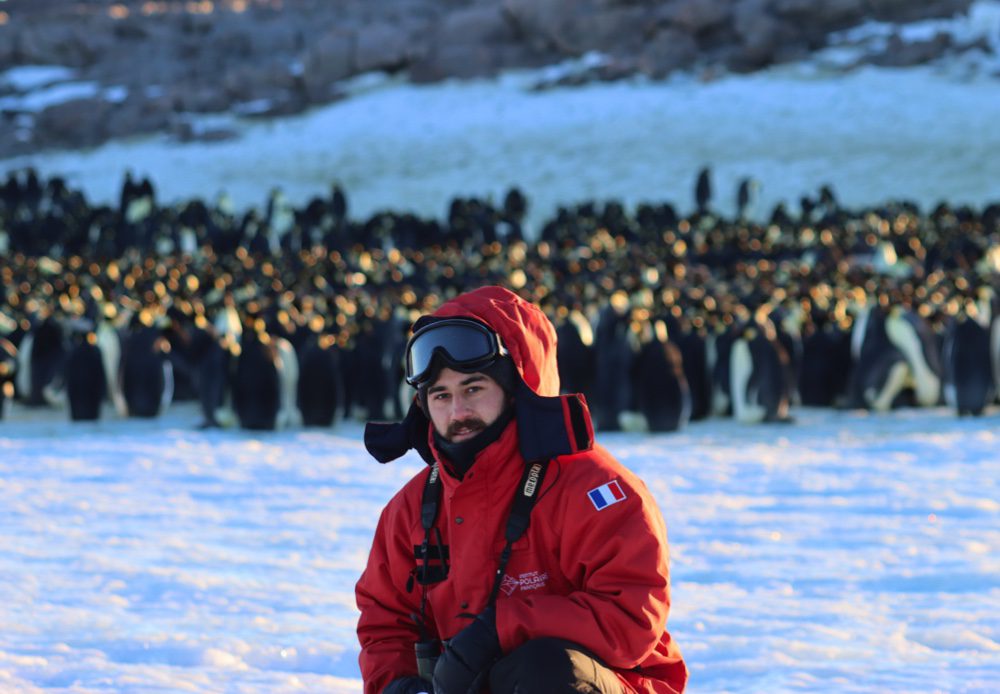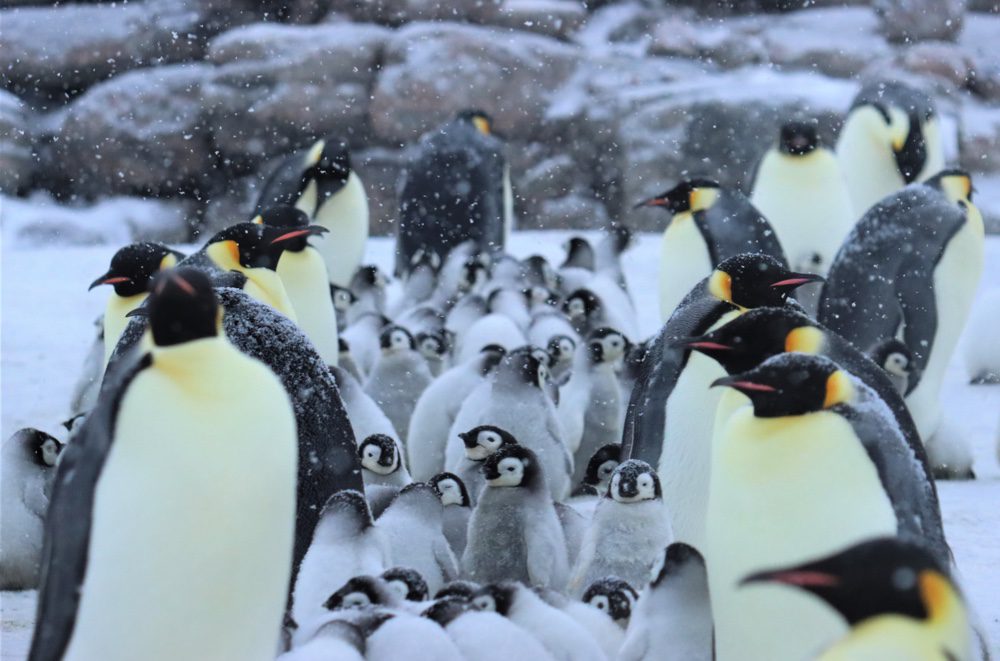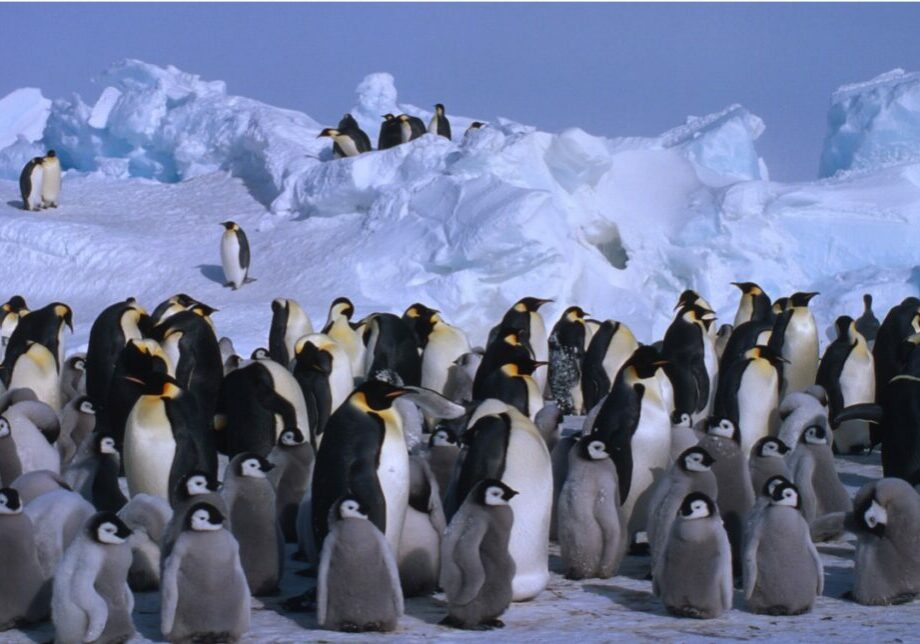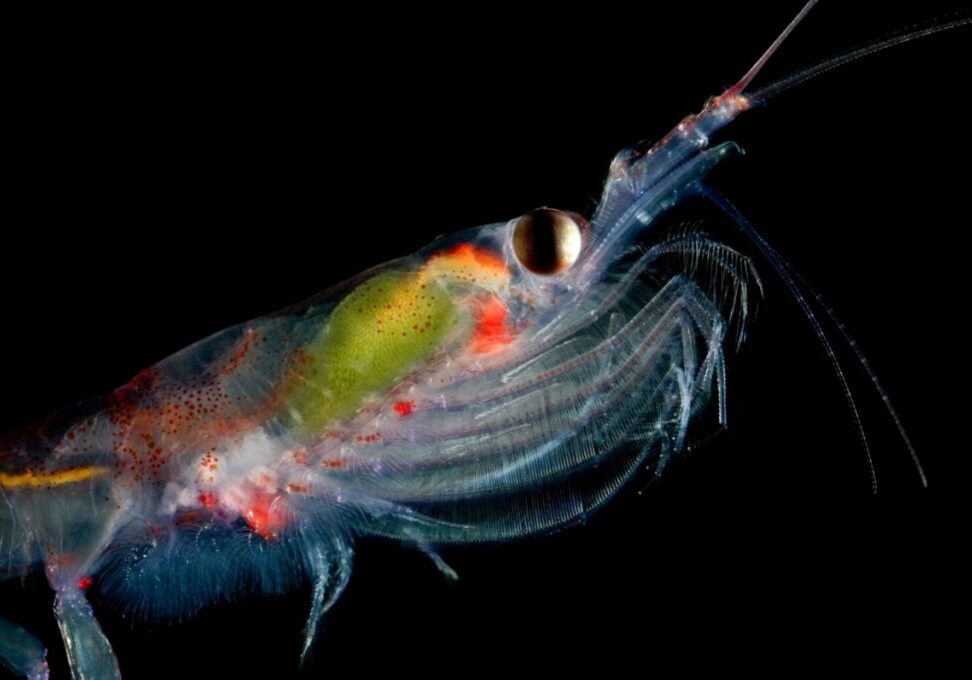Winter in Antarctica isn’t for everyone. During the summer months, a variety of hardy birds come to breed here in Adélie Land, and the Dumont d’Urville research station is home to several dozen polar scientists.
Now, though, with more than 300km of solid ice separating us from the rest of the world, there are just 21 of us at the station. Well, it’s just us and a few thousand emperor penguins – the only birds that braves the raw elements to reproduce in this extreme environment.
I’ve always been drawn to remote polar environments. Working in these vast, icy expanses with iconic birds like emperor penguins is a dream come true. I remember the first time one of them approached me: unaccustomed to humans, it came very close. I was like a child, filled with wonder. Now I spend all my days alone with the penguins. It’s amazing.
Every day starts with a visit to the colony. I load up my pulka (or sledge) with all my equipment and set off across the ice. As far as the eye can see, there’s nothing but a white expanse punctuated by monumental icebergs. And the silence of Antarctica.

© JIMMY ALLAIN
It’s about a kilometre’s walk to the colony. The closer I get, the louder it gets – there are around 4,000 pairs of penguins in the colony and they make a lot of noise! Some days I don’t stay long because the weather’s rough, but when conditions are good I stay for several hours.
The freezing temperatures, blizzards and violent winds are the main challenges during field work. I quickly learned to never let a glove get blown away by a strong gust! The good thing about the extreme weather is that it makes the emperors huddle together to keep warm, which is a beautiful sight.
Some days it’s impossible to go out. During the last storm, the wind topped 170km per hour and the temperature was -41°C! Those are the times you don’t mind staying in to catch up with paperwork.
How can we prevent penguin extinction?
Our short video explains what we’re doing – with your support – to help protect emperor penguins and their habitat.
All winter, I monitor the emperors. The colony here has been studied since the 1950s, so we have a lot of data about how it’s changed over time – this is particularly valuable for understanding and predicting how it will be affected by climate change.
My penguin research covers a number of areas. Some of the penguins have been tagged, and with an antenna system we can locate them, which can provide important information about the health of the colony as a whole.
Recording how long they spend away on their foraging trips, for example, gives us an idea of how far they’re having to travel to find enough food for their chicks.

© JIMMY ALLAIN
Daily monitoring of chick survival rates is also important for understanding the colony’s future prospects. As well as the extreme weather, chicks are at risk from predators, particularly the southern giant petrels that live on a neighbouring island.
Every day, we see these hefty seabirds picking off smaller, weaker chicks. It’s sad, but chick mortality is all part of the circle of life, and the petrels have their own young to feed.
Another area we’re looking at is penguin ‘kidnapping’. Sometimes female penguins that don’t have a chick of their own will attempt to steal one from another couple, which causes a lot of scuffles.
We know this broody instinct is partly down to raised hormone levels, but we’ve observed that the frequency of these attempted abductions varies significantly from year to year. So we’re investigating whether environmental factors are involved too, such as the availability of food, for example.
Thanks to your support, this research helps us get a better understanding of the long-term prospects of the colony in a changing climate.
Adopt a penguin
You can help Jimmy and other experts continue their Antarctic studies by adopting a penguin.

